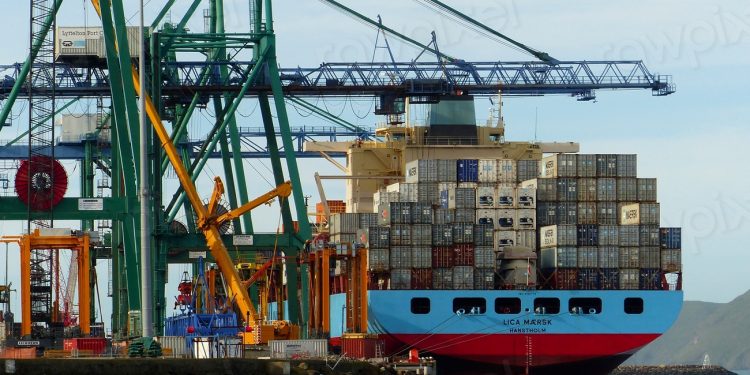Maersk, one of the world’s largest shipping companies, announced on Friday a significant rerouting of its vessels in response to security concerns. The Danish shipping giant stated that it would divert all its vessels around Africa, bypassing the Red Sea and Suez Canal for the “foreseeable future”. This decision follows recent attacks on its merchant ships by the Iran-backed Houthi militia.
The company, in its statement, highlighted the highly volatile situation and the heightened security risk in the region. “We have therefore decided that all Maersk vessels due to transit the Red Sea/Gulf of Aden will be diverted south around the Cape of Good Hope for the foreseeable future,” it said.
This development comes after a serious incident on Tuesday, when Maersk announced an indefinite suspension of passage on the route. This decision was made after the Singapore-flagged Maersk Hangzhou, a container vessel owned and operated by Denmark, reported being struck by a missile in the Bab al-Mandeb Strait while traveling from Singapore to Port Suez in Egypt.
Subsequently, the vessel was attacked by four ships operated by Yemen’s Iran-backed Houthis. The attackers reportedly opened fire in an attempt to board the vessel. In response, US military navy helicopters engaged and sank three of the attacking ships, while the fourth fled.
The attacks on commercial vessels in this region have been escalating. Since November 18, there have been 25 reported attacks on ships operating in the southern Red Sea and Gulf of Aden. In light of these incidents, 12 nations, led by the United States, have called for an immediate end to these illegal attacks by Yemen’s Houthis. They also demanded the release of unlawfully detained vessels and crews, warning of consequences.
The Red Sea is a crucial waterway, with 12 percent of world trade passing through it, as per the International Chamber of Shipping (ICS). It serves as a vital link between the Mediterranean and the Indian Ocean, connecting Europe to Asia. The Suez Canal, a gateway for ships entering and leaving this zone, sees the passage of about 20,000 ships every year.
This is not the first time Maersk has suspended shipping through the strait. In mid-December, the company, along with other global shipping giants, temporarily halted passage following Houthi attacks in Yemen. After resuming shipping on December 24, Maersk was compelled to suspend traffic again on December 31, just a week later.
The Houthi militia, responsible for targeting vessels in this vital shipping lane, has stated that these strikes are in solidarity with Palestinians in Gaza. They are retaliating against what they describe as relentless bombardment by Israel in a campaign against the militant group Hamas.
As Maersk adjusts its shipping routes in response to these security threats, the global shipping industry is closely monitoring the situation, given the strategic importance of the Red Sea and Suez Canal for international trade.



























